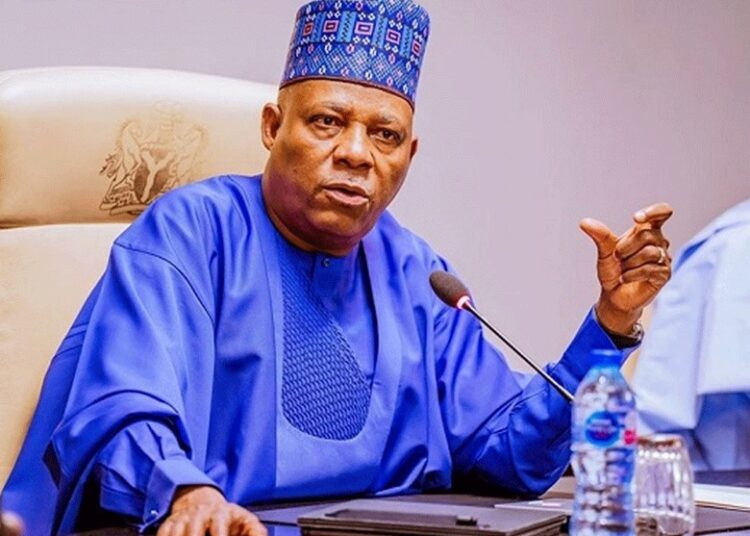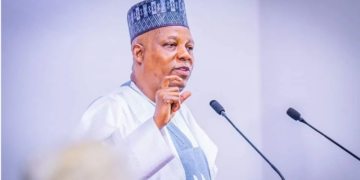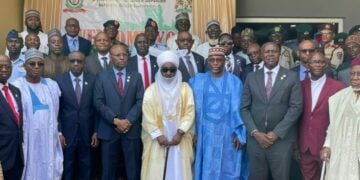Vice President Kashim Shettima ‘bullet or bomb’ has neither ethnicity or religion, hence, the need to collectively address the complex security challenges bedeviling the country.
Shettima said Nigeria cannot claim progress unless each part of the country moves forward at the same time.
The Vice President who was represented by the Deputy Chief of Staff to the President, Senator Ibrahim Hadejia, spoke at a high level stakeholders’ engagement on regional development organised by the National Counter Terrorism Centre, Office of the National Security Adviser (NCTC-ONSA) in Abuja.
“A bullet or a bomb has neither ethnicity nor religion. When it is fired by the enemies of our collective peace, it does not discriminate. It kills the farmer and the trader alike, and it destroys the very fabric of our multifaceted, multi-religious, and multi-ethnic society in a devastating and retrogressive manner.
“Our challenge, therefore, is not only to fight the forces behind these conflicts, but also to dismantle the sentiments that are weaponised to divide us and weaken our resolve to fight back as one nation.
“Beyond ideas and agendas, we must pay close attention to the power of messaging. Our messaging must be rooted in empathy and understanding,” Shettima said.
He stressed the need to build, strengthen institutions and correct identified imbalances.
He said, “We cannot claim to have progress as a nation unless each part of the federation moves forward at the same pace. What we need, therefore, are functional institutions that guarantee the presence and service of government even in the remotest parts of the country,” he said.
Shettima said the engagement was a bold step towards a truly inclusive Nigeria where the dividends of democratic governance would be felt across every local community, every geopolitical zone, and every socioeconomic sector.
He said the establishment of regional development commissions across six geopolitical zones serve not only as vehicles for development, bringing government closer to the people, but also as platforms for peer review and shared learning.
He added that each commission has been tasked with attending to the peculiar needs of its region, its people, its resources, and its realities.
The VP added that the government before has before now, worked with the private sector and international institutions to develop practical, evidence-based agendas for sustainable development.
He, however, said despite previous efforts, the greatest challenge remained the need for context-specific strategies and frameworks and aspirations of every region.
He further tasked the regional commissions to collaborate and commit to promoting the collective understanding required to fix what is broken and build resilience where fragility once prevailed.





